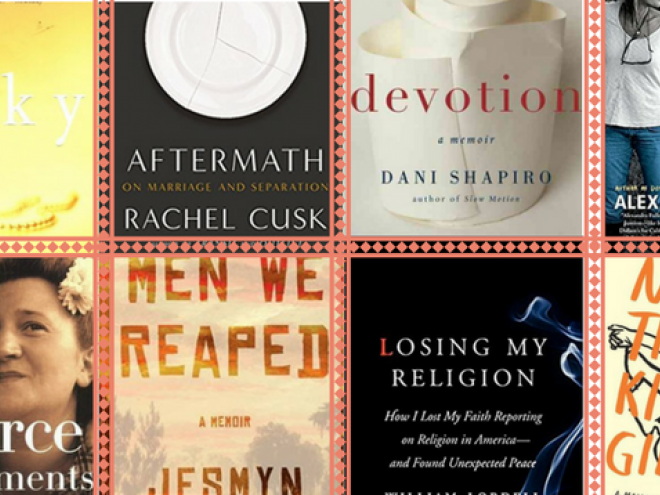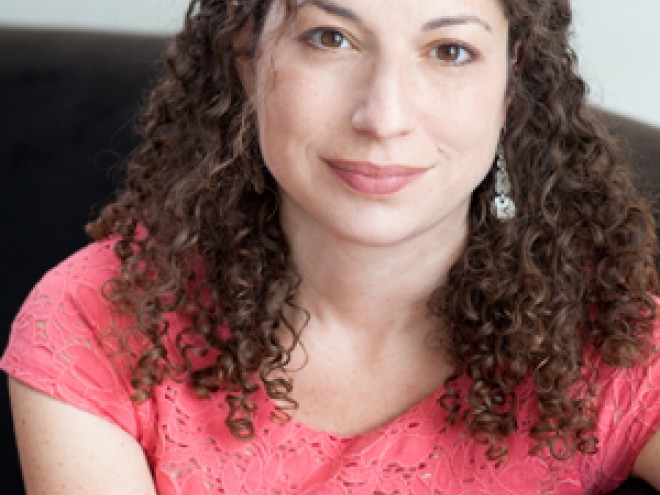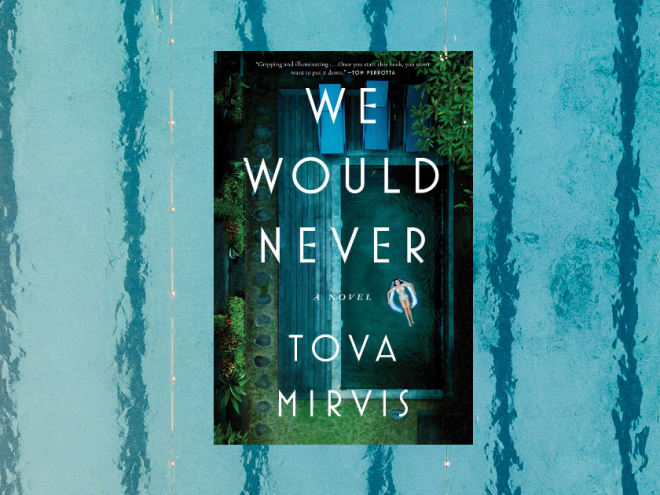
Header image courtesy of stephXstitch
Tova Mirvis is the author of The Book of Separation, a memoir, out later this month from Houghton Mifflin Harcourt. She will be blogging here all week for Jewish Book Council’s Visiting Scribe series.
Never read the comments, my writer friends all advise when publishing a personal essay online. Wise words, and I followed them when, several years ago, I wrote an essay that ran in the New York Times about my Orthodox Jewish divorce ceremony in which I realized that I was leaving not just a marriage but the religious world in which I was raised.
But I hadn’t expected the flood of emails.
When the essay was published, I happened to be on a hiking trip in Corcovado National Park, in a remote region of Costa Rica. It was a trip where for a week, I was cut off from the world — I had hiked fourteen miles into the rain forest, spent two nights at a ranger station, then traveled by boat to an eco-lodge in Drake’s Bay where sloths hung from trees and toucans and scarlet macaws flew past.
I checked my phone only once — in the sole spot at the edge of the forest where there was reception, and saw an email from the Times editor that the piece would run the next day. I was excited, of course, but also worried about putting the most private, painful part of my life into the world. I’d never felt so vulnerable, on the verge of such exposure.
On a laptop borrowed from another guest at the eco-lodge (in an attempt to be fully away, I’d left mine at home) I answered the copy editor’s queries. I sent a heads-up email to my family letting them know about the essay. But finally, in this remote locale where the word looked like it had been painted entirely green, there was nothing to do but let go.
When I came back to everyday life, I had hundreds of‘emails waiting for me. A few were from people I knew, but mostly they were from strangers old and young, of all religious backgrounds, sharing with me their stories of change and transformation. I had prepared myself for the cruelty of the comments section, but I hadn’t expected this.
One letter after another saying, I too have felt trapped. I too am on the brink of upending my ordered life. I too have forged a painful change. People I didn’t know, saying I am holding your story, and in exchange, handing me theirs. It’s all too easy to feel cut off inside the remote locales of our own lives; to look at those around us and only see the well-constructed exteriors; to dash off the mean-spirited response to someone else’s experience; to lose sight of the fact that inside everyone around us, some painful question is being asked. But by telling a story in which we are made vulnerable, we are holding out a hand, making a connection, offering a direct point of entry into our lives.
A few months later, I started writing the memoir which eventually became The Book of Separation, expanding on the story I’d told in the essay. I still felt afraid – inside me were the voices of censure and judgment, my own internal set of trolls, casting eternal judgment. In order to write, I summoned that rain forest in my mind, a place where I could quiet that swirl of thought. I kept those emails as a rebuttal to those naysaying voices, and reread them, to remind myself of the ways that telling our stories can help us see, really see, ourselves and those around us.
Tova Mirvis is the author of the memoir The Book of Separation as well as four novels, We Would Never, Visible City, The Outside World, and The Ladies Auxiliary, which was a national bestseller. Her essays have appeared in various newspapers including The New York Times Book Review, The Boston Globe Magazine, and Poets and Writers, and her fiction has been broadcast on NPR. She lives in Newton, Massachusetts, with her family. You can connect with her on her website, TovaMirvis.com.



